From the original Greek, a mote is a small piece of wood like a chip or splinter, but a beam is like a much larger structural member used to construct a house. The contrast here has been applied differently but always with a play on the vast difference in perspective represented by the different size of the mote and the beam. When applied to dating, that contrast enlightens how LDS singles can improve their dating lives. It’s all in the lesson of the mote and the beam. Flip your intention  The Savior is talking here about judgment because in the previous two verses He encourages judging righteously. And it’s a pretty simple analogy. How do we condemn others in righteousness when we ourselves are so grossly lack righteousness? Often we judge small imperfections in others as huge monumental issues. But if we look inside ourselves, we’ve got issues that truly are monumental, just as a beam is monumentally larger than a mote. “For all have sinned,” the apostle Paul declared, “and come short of the glory of God” (Romans 3:23). I know for my own self I’ve never claimed to be anything but a walking construction zone with more imperfections than Swiss cheese has holes. So who am I to judge others for falling short when I myself am so lacking? And that’s the point. It’s not about refraining from making any judgments at all; it’s about recognizing how we’re all flawed and then allowing that recognition to lead us into empathy and compassion in viewing others. Our intention turns from condemning them for their imperfections to considering how we can help them improve. See your beam  The application to dating should be obvious. When evaluating potential dates, too often singles reject candidates based on imperfections when they themselves are certainly not paragons of perfection. Singles often assessing those imperfections, however tiny, as monumental disqualifications. They focus so much on having perfect they forgo the joy they could have if only they accepted good enough. And as we’ve discussed before, you can have maximum joy with someone who’s just good enough if both of you give your all to each other. That typically isn’t what happens, though. Singles use whatever standards they have as a litmus test in which no imperfection is tolerated. And since so many of us are wildly imperfect, no one passes the test, which leaves singles stuck asking where all the “good” candidates are and wondering why they can’t progress in their dating journey. Remove the mote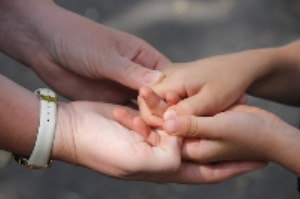 What’s the solution here? The Savior advised us to take the beam out of our own eye first, and then we’ll see clearly to remove the mote in another’s eye. Applied to dating that advice becomes this: Look to accept and improve yourself first, and then you’ll be better able to accept and improve a potentially good dating partner. Instead of discarding potential candidates with their imperfections, singles should ask how they can help them to discard those imperfections. The key here is assessing direction. You need to allow and encourage potential partners to show they’re aligning their lives with the direction you want for your life. If they demonstrate that willingness, you should investigate further rather than summarily rejecting them for their imperfections. I’m not suggesting we’re interchangeable parts or that there aren’t acceptable reasons for rejecting a dating candidate. What I am suggesting is that we need to be more accepting of imperfection in others, especially since each of us is bereft with imperfection. The perfect partner for you is the imperfect one who’ll help you become perfect and who you in turn help to perfect. So take in the lesson of the mote and the beam. It may be hard at first, but you just might be surprised at how perfect for you some of those you previously judged as too imperfect actually are. And that will bring you more joy in your journey.
0 Comments
Watch your focus  And yes, I said singles should ask that question of themselves. Your focus determines your reality, so if you don’t like your reality, take a look at your focus. Making that change on the inside can make all the difference in your world on the outside. And because we’re all designed to operate out of habit, whatever focus we do have we’ll continue to use over and over again. That’s great if your focus creates a reality you want and not so great if your focus creates a reality you don’t want. But it all starts within, so to change your reality on the outside, change your focus on the inside. If your focus in dating is all about you and what someone else is going to bring you, then you’ll likely attract only those with a similar focus. And the only reason they’ll want you is more because of what they think they can get from you and not so much with who you really are. Dating isn’t shopping  It’s little wonder we think this way. Modern dating has an increasingly online component, so much so that we bring to dating the same thinking — the assumptions, perspectives, attitudes, and habits — that comprise our online life in other aspects. And pretty much everyone spends a substantial proportion of that life online shopping. The Internet makes getting pretty much whatever you want so very easy. You look around at options from different offerings, compare prices, read and weigh reviews, and make a purchase. A couple or so days later, your order arrives right at your door. There’s no need to go anywhere. And if what you get isn’t really what you want, you get rid of it. We do the same thing with dating. We swipe past photos of potential candidates who aren’t cream of the crop, filter profile details, and maybe read what others write. We’d never reach out to a company offering an inferior product; we simply wouldn’t buy. So why would we even think about talking to a dating candidate offering what appears to be an inferior candidacy? The “right” one will arrive on our door in a timely manner and just lift us into bliss, because isn’t that what happens when your relationship is really right? Find real happiness  Are you catching the focus in this common approach? It treats people like things, which of course trips us up because people are not things. But it’s also all about what you get. And that’s completely backwards because happiness in marriage is more about what you give than what you get. Long time audience members will know I define happiness as giving your all to all the right things for you. Notice there’s no getting in that definition. It’s all about what you give, and it’s giving all of you to all that’s right for you. Certainly your spouse counts as one of those right things. Now I’m not suggesting we’re all interchangeable parts who can just marry anyone and be blissfully happy based entirely on what we give. The relationship we’re talking about here is a two-way street; it can’t be all give and no get, for either partner. But too often we focus so much on the getting that we ignore the more major contribution of the giving. So instead of asking, “What will this person bring?” when evaluating a dating prospect, ask yourself, “What will you bring?” When you focus on getting good with you on the inside and making the changes to make you the best you you can be, in that process you’ll cross paths with someone who’ll want to share the life you’re creating, a life in which you each give to each other the best you each have to give. And that will bring you more joy in your journey.
This logic keeps many LDS singles single longer — in some cases, much, much longer. Here’s a more effective approach: Live where you are in your dating journey. Don't reject a date based on your standards for marriage. Reject a date based on your standards for dating. Know where you are  To live where you are, you must first know where you are. Having a good map can be helpful for that. As we’ve discussed before, the dating journey map shows these stages:
Know your next step 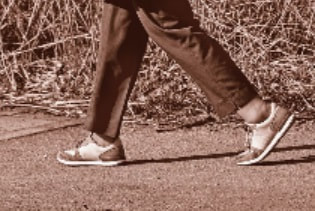 No map will tell you where to go. But once you decide your destination, a good map will tell you how to get there. Understanding the different stages of the dating journey helps you know where you are on the map. From there, the dating journey map tells you how to get where you want to go. You don’t climb a mountain by constantly staring at the peak. You climb a mountain by looking where your feet you are and taking a step forward. Your focus, then, should be on the next step in front of you, not the end goal. Once you know where you are in your dating journey, your next step is to secure the agreement for the next stage. Without the necessary agreement, you don’t progress. Period. You don’t need to look beyond the agreement you need for the next stage. That’s like staring constantly at the summit without looking where you put your feet. Good luck climbing the mountain that way. Be where you are Many LDS singles have disagreeable dating experiences because they keep looking at that summit of marriage instead of the earlier dating stage where their feet are. It’s no wonder they keep tripping over themselves and getting hurt. If that’s your experience, here’s some free advice: Start living where you are. If you focus on where your feet are and take the next step directly before you, and then the next one, and so on, eventually you’ll climb the mountain. So focus on where your feet are: Apply standards of dating to dates. This of course means you might date someone you wouldn’t marry. So what? That’s perfectly normal; everyone dates people they never marry. Only by dating lots of people will you better know that right type of person who demands more serious consideration. Because you’ll date people you’ll never marry, your standards will change with each stage of the dating journey. You’ll casually date people you won’t exclusively date. And you’ll exclusively date people you won’t marry. Recognizing these truths makes it easier to live where you are. You can better enjoy someone’s company irrespective of whether or not you’ll marry that same person when you focus on that moment rather than on some agenda to achieve a future goal. Applying standards of dating to dating helps you to live in the place where you are. This in turn helps you to live more fully in the moment and makes you more attractive to someone who can help you be where you want to be. And that will bring more joy in your journey.
What does surprise me is that singles have been the majority for the past two years and only now are we hearing the Brethren talk about it openly. Whatever the reason for its delay, the announcement is no less welcome. It marks a noticeable and important turning point in the unfolding of the Restoration, declaring to the world that, no matter your background or circumstances, there is room in the inn for you. Leave the old behind  It hasn't always been that way in practice. You don't need to be a long-time listener of the program to know the traditional family-centered culture of the Church has challenged many singles to feel like they truly belonged. But probably only long-time listeners know some of my experiences with that challenge. Of all of the different wards I've attended, one of the most challenging was the midsingles ward I attended in Seattle. That assertion may surprise some who think that I as a single adult should feel a greater sense of belonging in a ward filled with other singles. But it was not so. Far from it, I routinely felt isolated, ignored, and invisible. Memories of those days played in my mind as Elder Gong spoke of a gospel culture of belonging, one in which everyone is important, even essential. What he describes is the exact opposite of what I experienced. To be fair, I've been a part of some really outstanding wards filled with people who really reached out to help me feel welcome and included. And these wards entered my life at times when I need relief and rest from wrestling with the challenge presented in other wards, like the midsingles ward in Seattle. The Lord's hand was definitely evident in those moves. Embrace a new season  The Lord's hand was also evident in Elder Gong's remarks. As he spoke of the Church as a place where "we are all equal, with no second-class groups," Elder Gong provided more impetus for the change that has been unfolding now for the past several years. Long-time listeners to the program will know what I'm talking about here — a change in the culture away from a center on family and towards a center on Christ. A family-centered culture means you need to have a family to belong, but a Christ-centered culture means you need to have Christ to belong. Singles by definition don't have a complete family of their own, but everyone can have a covenant relationship with and devoted discipleship of the Lord. Elder Gong recognizes as much when he declares,
Elder Gong identifies a change in the culture more explicitly when he taught,
Oh, the times, they are a-changin'! Keep the covenant path  Hearing Elder Gong describe the Christ-centered culture I've advocated on this platform for years set me on fire. It also filled me with deep gratitude to God He hasn't forsaken His single sons and daughters but rather remembers every single one (pun intended). We don't always know what the future will bring, but we can always know the goodness of God as He dispenses grace and tender mercies in hours of need. "As we create room in His Inn," Elder Gong declares, "welcoming all, our Good Samaritan can heal us on our dusty mortal roads." That is why only in helping others can we receive the help we each really need. There will always be room in the inn where true disciples reach out in love to welcome all and keep all on the covenant path. As we each contribute in our own way to that effort, we will embrace a truer, purer gospel culture in which all truly belong. And that will bring us more joy in our journey.
|
Author
Howdy! I'm Lance, host of Joy in the Journey Radio. I've been blogging about LDS singles life since 2012, and since 2018 I've been producing a weekly Internet radio show and podcast to help LDS singles have more joy in their journey and bring all Latter-day Saints together. Let's engage a conversation that will increase the faith of LDS singles and bring singles and marrieds together in a true unity of the faith.
Comment
Joy in the Journey Radio encourages the free discussion of ideas but reserves the right to remove and/or block comments which do not conform to LDS standards.
Donate
Joy in the Journey Radio offers many free resources to help LDS singles everywhere, but it certainly isn't free! Help Joy in the Journey Radio in its mission to improve the lives of LDS singles by donating today.
Posts by Month
December 2022
Categories
All
|

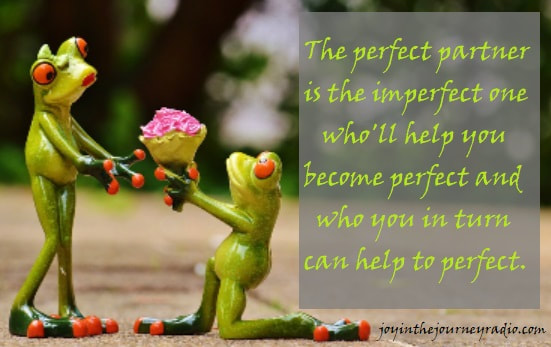
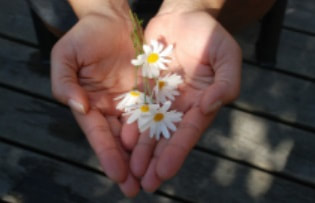



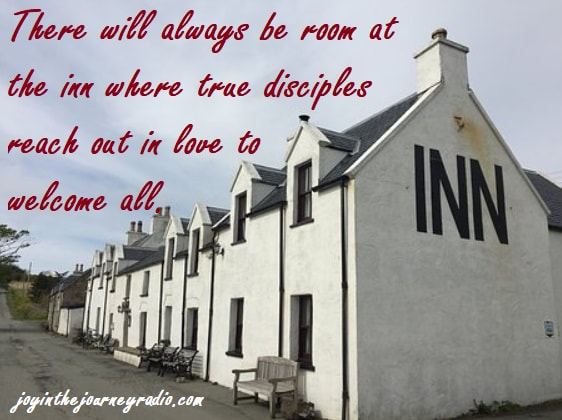
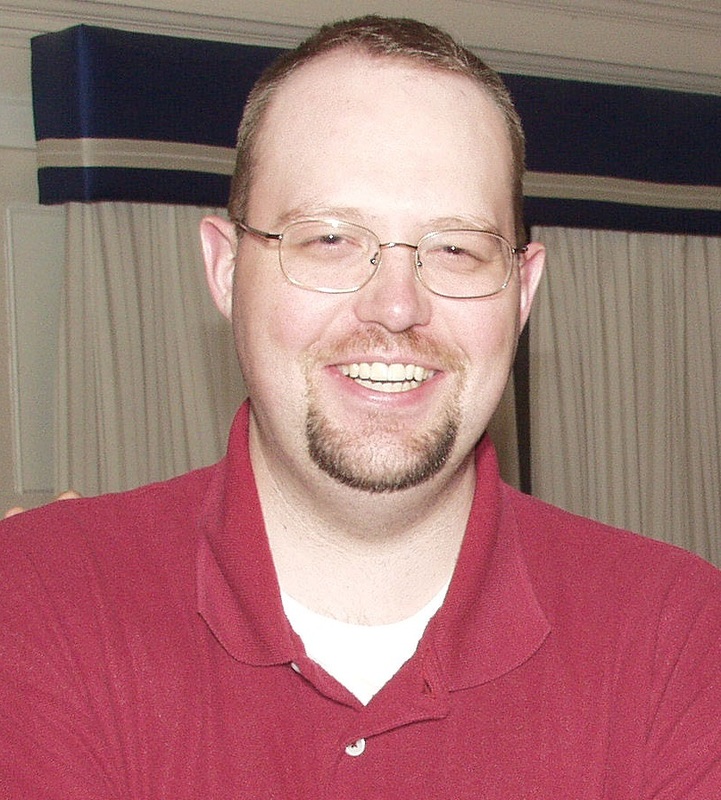
 RSS Feed
RSS Feed